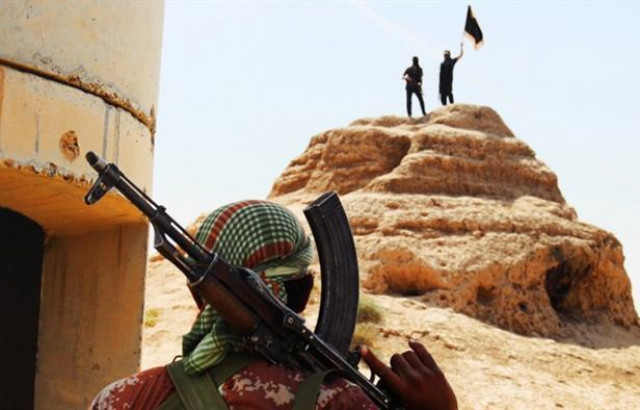Iraq tears itself apart
US should know that airstrikes are hardly the answer to rampant militancy, and that Iraq’s troubles are multi-faceted.

Iraq tears itself apart
So, how did it come to this? The answer is years in the making. An increasingly lethal Shia-Sunni fault line has emerged, cutting across the Muslim world, from Bahrain to Syria, Lebanon to Pakistan — and Iraq is no different. The civil war that followed the American invasion of Iraq has segregated villages, cities and entire regions along sectarian lines. But of course, sectarianism forms only one part. Another is Nuri al-Maliki, Iraq’s Shia, Iran-backed (previously America-backed), increasingly autocratic prime minister, who has done little to forge sectarian harmony in the wake of the civil war and America’s departure, leaving Iraq’s minority Sunnis fearful and militarised. Another is Iran, which has become influential in Iraq ever since America’s departure, and is supporting Maliki’s sectarian regime. Of course, another is the US, whose boneheaded invasion in 2003 sped up Iraq’s descent into chaos. Its equally ill-timed decision to leave — when it was apparent that Iraq’s nascent democracy was illiberal and floundering; its army ill-disciplined and badly trained; that violence was increasing, and increasingly sectarian in nature; when war in Syria was spilling over its borders — encouraged Iraq’s myriad militant groups to regroup and reassert themselves.
And reassert they did. The ISIS is a nasty piece of work, so extreme that even al Qaeda distanced itself from it. It has conducted and filmed mass executions of Shias, and recently of one of Iraq’s most vulnerable religious minorities, the Yazidis. In very little time, it has grown to be one of the most formidable rebel groups in both Syria and Iraq. Ever since it procured most of northeastern Syria, including its border with Iraq, it now controls territory roughly the size of Belgium, including Mosul, Iraq’s second-largest city. It is important to consider that the ISIS controls, and seeks to control many of Iraq’s richest oilfields, including those in the country’s northeastern Kurdish areas, thereby being able to sustain itself.
In response, the US has belatedly began a bombing campaign on ISIS installations, ironically bombing American weapons that the US had left behind, and had since been acquired by ISIS fighters. (The intention is to make sure that Kurdish areas, which provide hundreds of thousands of barrels of oil every day, are not taken over.) But the bombing is neither here nor there. The US, of all countries, should know that airstrikes are hardly the answer to rampant militancy, and that Iraq’s troubles are multi-faceted and complex. In an interview, President Barack Obama blamed al-Maliki (conveniently omitting that it was the US that put him there) for the chaos in Iraq and for the removal of all American troops. That is disingenuous. Since the invasion, Iraq has hardly ever been in a position in which it had agency. Being the world’s sole superpower (which entails invading and withdrawing from countries at will), the US can hardly place responsibility on al-Maliki for its own absence in dealing with Iraq’s latest military threat. Political expediency and its own hurry to leave are directly responsible for the anarchy in the Middle East right now.
A generation of dictators has passed and has not left anything promising in its wake. Libya is on the cusp of a civil war; Syria is in the middle of it; Egypt has been taken over by the army once more; and Iraq continues to be torn apart. The Arab Spring has come to nought.
Published in The Express Tribune, August 15th, 2014.
Like Opinion & Editorial on Facebook, follow @ETOpEd on Twitter to receive all updates on all our daily pieces.














COMMENTS
Comments are moderated and generally will be posted if they are on-topic and not abusive.
For more information, please see our Comments FAQ